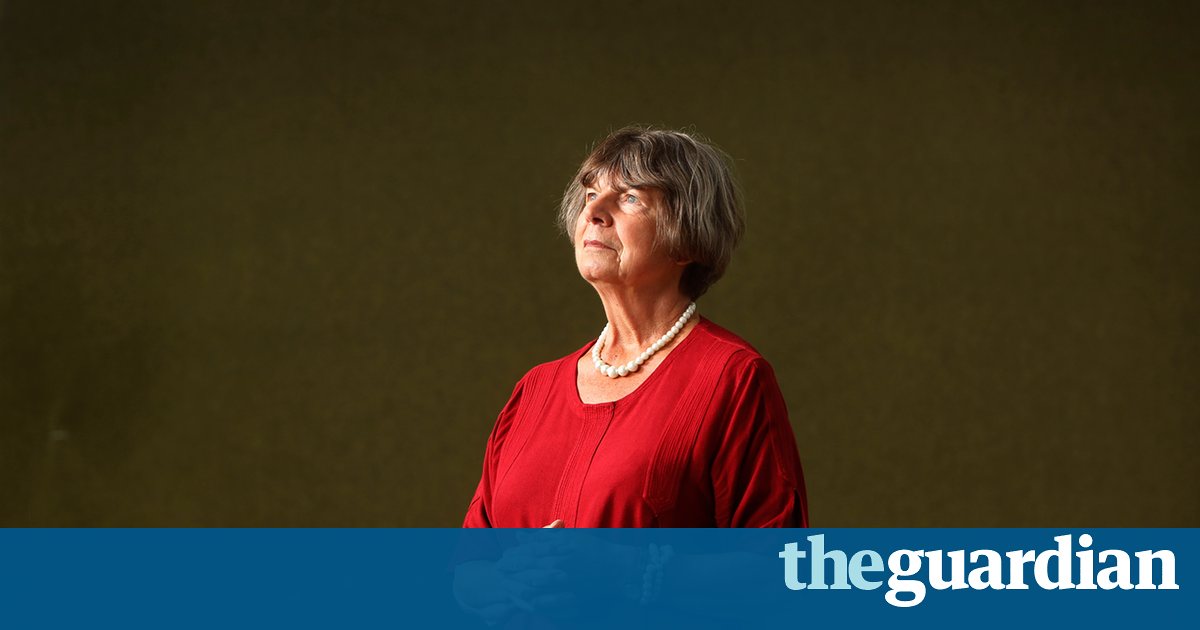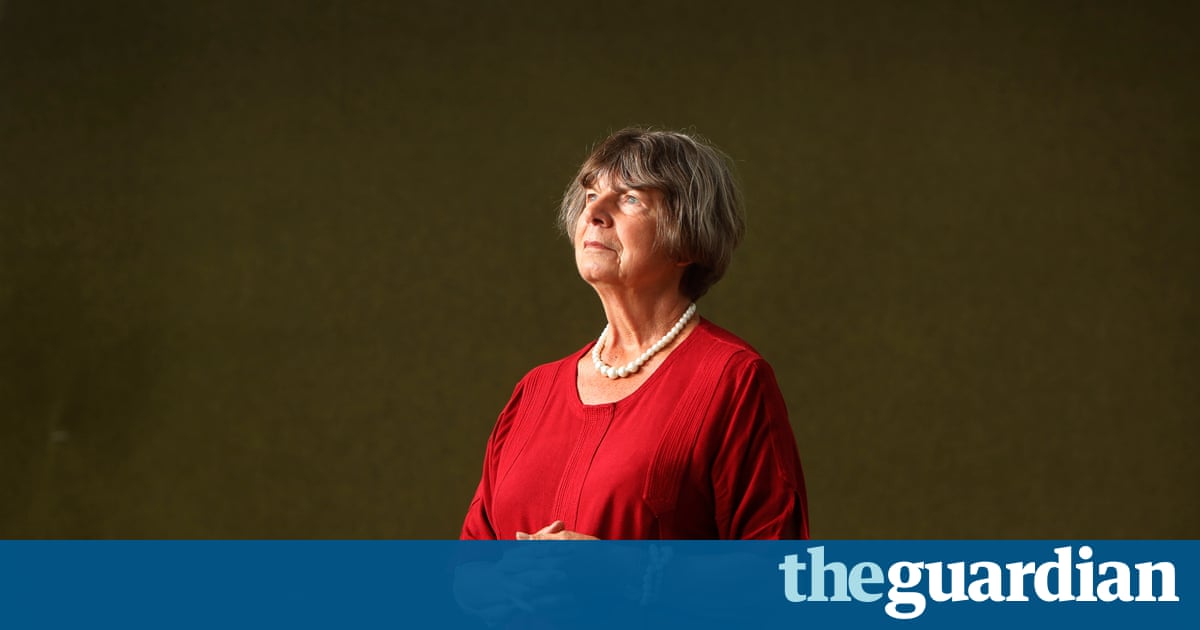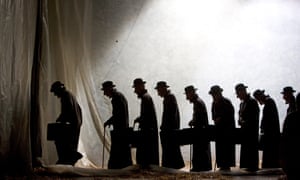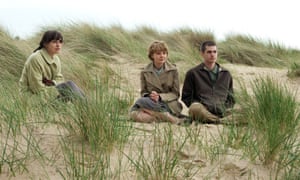Margaret Drabble: I am not afraid of death. I worry about living

As life expectancy increases, and scientists search for new ways to outwit mortality, we are beginning to fear old age and longevity more than dying. But who decides when it is the right time to go?

We are often told that in earlier times all cultures had a concept of the afterlife that everybody believed in some form of life after death, be it a journey over a river to a dark land, an eternity of hellfire and torment, a paradise with angels and ambrosia, or a reunion with loved ones. We have created many metaphors to carry us across the Styx. Some cultures believed, and believe, in rebirth and the migration of souls. In 21st-century Christian countries, orthodox religious services still routinely profess faith in the resurrection of the body. Painting and poetry and mythology offer us visions of heaven and hell, some horrific, and some, like Stanley Spencers, reassuring and comforting. But Ive always suspected that most of us, even in the pious, priest-dominated Middle Ages, didnt really believe what we said we believed. Most of us knew that when we were dead, we were gone. We went nowhere. We ceased to be. Thats what we didnt like about death not fear of hell, but fear of nothingness.
This is, historically, anthropologically, a heretical position to hold, and when I try to argue it I am usually shouted down. Ive got no historical imagination, I am told. Things were different then, scholars insist. Human nature was different then.
And maybe it was. Even in my lifetime, I have known a few people of faith, true believers, who would certainly have gone to heaven, if there were one. More than a century ago, Robert Browning may well have expected to meet his wife Elizabeth Barrett Browning in the hereafter, as he wrote in his great death-defying poem Prospice, one of the first works I ever learnt by heart. O thou soul of my soul! I shall clasp thee again, and with God be the rest! Their lives together on Earth had been so miraculous that one miracle more would not have been surprising.
The delusion of an afterlife also seems to have a grim hold on modern-day martyrs, if we can believe all that we are told. But thats another story, another subject, and so alien to most of us that it is hard to contemplate.
I would contend that in the largely secular west we now live in a post-religious era, where true faith in survival after death, pleasant or unpleasant, is restricted to a small minority. Thats not a contentious position, but it leaves the rest of us to struggle with the meaning of death, as we can no longer see it as a staging post to somewhere else, or as a great adventure, or even, in the alleged last words of Henry James, as the distinguished thing. Death is becoming less and less distinguished.
One of the problems with death in our time is that it becomes increasingly avoidable, or at least postponable. We are materialists, and we dont believe in the soul. There is no ghost in the machine. We find medical solutions to medical problems, we dutifully take our statins, and our financial advisers and their actuaries declare that our life expectancy is increasing day by day, hour by hour. This is meant to be a good thing, like the ever-rising price of property, but on one level we all know it is not. When more good news about longevity is proclaimed on radio bulletins, there is usually a curiously sombre note of foreboding in the announcers voice. For it is not a sustainable trajectory.

Popular science and even academic conferences discuss the possibilities of human beings living for hundreds of years or longer, but some of us remember the terrible fate of Jonathan Swifts immortal struldbrugs on the island of Luggnagg, in Gullivers Travels, condemned to live on with diminished faculties into extreme old age. Swift does not mince his words: his immortals (of whom the women are of course more horrible than the men) had not only the follies and infirmities of other old men, but many more which arose from the dreadful prospect of never dying. They were not only opinionative, peevish, covetous, morose, vain, talkative, but incapable of friendship, and dead to all natural affection, which never descended below their grand-children. Envy and impotent desires are their prevailing passions they forget the common appellation of things, and the names of persons, even of those who are their nearest friends and relations. For the same reason, they never can amuse themselves with reading, because their memory will not serve to carry them from the beginning of a sentence to the end He might have been describing the inmates of a 21st-century care home for the elderly.
Even those egomaniac plutocrats who have had their heads or their body parts frozen in hope of the discovery of techniques to revive them in a distant future must have some doubts about the quality of life they can expect when they are brought back from the icebox. Oh, the boredom of immortality! The dullness of a death in life, frozen through aeons in a test tube! The ghastly awakening! The gruesome pseudo-science of cryonics is, of course, speculative, but that hasnt stopped a few hundred people going for it already, with more queueing up behind them. As we know from Kazuo Ishiguros poignant novel, Never Let Me Go, some people will stop at nothing in their efforts to extend their lifespan. Awareness of our mortality is Ishiguros subject. We can trust him on that.
Through our own mortal ingenuity, we are reaching a historical phase when we are beginning to fear old age and longevity more than we fear death. We can no longer look forward to the possibility of a sudden, unexpected, merciful release, or falling asleep in bed while reading a book (as my mother did), or ceasing on the midnight with no pain. Nor can we make plans to celebrate our departure as a grand culmination of our lifes endeavours, with a gracious and grateful and possibly public farewell. Thats because we know that officious folk are going to strive to keep us alive for as long as they possibly can, until we can no longer enjoy anything. Just to prove that they can.
A bureaucracy of cruelty and fear, with diminishing returns, surrounds end-of-life care and possible pathways to the grave. It will drag us back from the brink, again and again if were not careful, until life has become so intolerable and undignified that we pray to be gone.
I sometimes ask myself, as I approach the bourn from which no traveller returns, if I am afraid of death. Theres nothing wrong with being afraid to die. Dr Johnson, that generous spirit and devout but tormented Christian, was greatly afraid. But I can more or less honestly say that Im not. Its not that I dont think about it I think about it every day, as I have done ever since I first had children, those hostages to fortune. But I dont waste what time is left to me worrying about it. What I do worry about is living.

How long do we want to live? This is not a simple question. The brain-freezers and person-cloners and perhaps the Zuckerbergs would presumably reply for ever, which is a very stupid answer, as Swift pointed out long ago. But if you dont glibly say for ever, what kind of term are you going to allot yourself? I went to a philosophy conference at Nuffield College in Oxford recently, at which questions of ageing were being addressed, with special reference to public policy on pension distribution and intergenerational justice. We were asked to adjudicate between various scenarios involving, for example, short and painful lives, or longer active lives ending in later years of protracted illness and incapacity. How should goods be distributed and wealth taxed in the future, in view of the evolving demographic of an ageing population? We were asked to consider the age at which we would opt to die, had we the choice, and it was suggested that these days we would think 70 too young, 80 about right, and 100 too old.
The most startling moment came in a Q&A session, when a normal, healthy looking middle-aged woman volunteered the information that she had been given a life expectancy of 100. Apparently this is now not unusual. She did not seem wholly happy about it, understandably: the prospect seemed more of a burden than a blessing. She did not want to be a struldbrug. Maybe in some circles it is normal to have ones life expectancy tested before, say, downsizing ones housing requirements or adjusting ones annuity. I can see the practicality of that. And I remember, bizarrely, a GP saying to my aunt: I can guarantee you until youre 90, but not much after that. GPs arent often so forthcoming. And the doctor was right: my aunt lived on, independently, in her own much-loved though increasingly untidy home, then spent two unhappy years in care, and died aged 92.
Not long ago, in 2014, I was asked to take part in a debate about the optimum age to die, which had been proposed as 75 by bioethicist Ezekiel Emanuel in a provocative article in the Atlantic. I remember the slight sense of shock when I opened this invitation in my BlackBerry as I sat innocently unaware in a Little Chef just off the A303 in Somerset. I new why Id been asked: Id recently published a piece in favour of the right to assisted dying (which Emanuel, perhaps surprisingly, opposes) and I was, at that date, precisely 75 years old. Time for me to go, obviously, other people were thinking. I declined, instantly: I didnt want to engage with this topic at all. And then I went back to the enjoyment of my cholesterol-packed, statin-moderated indulgence of scampi and chips. From big questions to small pleasures. Thats how we keep going.
Ive thought a good deal since then about the question of the fixed term. Emanuel didnt say you had to sign off at 75, he merely recommended that after that date you should refuse intrusive or expensive medical aid aimed to extend your life. You shouldnt use up other peoples resources. (I have some sympathy with this position.) The novelist Anthony Trollope went much further, in his satirical novel The Fixed Period, set in 1980, and published in 1882, in the last year of his life: in this he invents a utopian (or dystopian) antipodean island society which has recently passed a law decreeing that, for the common good, euthanasia will be compulsory for all its citizens between the ages of 67 and 68. Naturally the inhabitants of Britannula, as they draw near that marker, become decreasingly convinced of the merits of the law, and all ends as one might expect. Its a grim little novel, and it depressed me.
We should never be made to know, by external factors, the exact date of our death. It is too much knowledge to bear. The state should never impose a fixed death. It has not the right. Trollopes Britannula was as opposed to capital punishment as I am and, unlike Britain at the time, had abolished it: clearly the concept of a fixed period of life and of a state death sentence were some-how connected in Trollopes mind, and both seemed to him to be wrong. It should not be possible for some human beings to say to another human being on such a day you shall die. We may choose our own date, and we may take ourselves to Dignitas in Switzerland to keep faith with it, but it may not be chosen for us. Autonomy in death is a basic human right.
I dont mean to make light of the newly created ethical difficulties facing doctors, paramedics, bishops and legislators. The problems are real. Every day we read or hear distressing testimony from those who have had to make painful life-or-death decisions about removing pacemakers or turning off life-support machines. The issues are usually explored with scrupulous care, and we can hear them discussed in depth on Joan Bakewells Radio 4 series Inside the Ethics Committee. This doesnt prevent cruel miscarriages of justice, caused more often by bureaucratic and legal confusion than by bigotry or self-protection. We are in unmapped terrain.
Bakewell, in her early 80s, personifies the cheering possibility of a useful and happy old age. But not everybody can grow old as successfully as she has, and remain articulate, beautiful, energetic, adventurous. More of us will dwindle away, and succumb to dementia, incontinence, loss of mobility and chronic or acute pain. Our bodies become our enemies, in the long run, and do not want us to go on for ever. There will come a point when we wont like looking in the mirror any more. We dont like to admit that there is anything repulsive about extreme old age, but I can remember, if I am honest, that as a child I found the spectacle of some of the very old alarming and frightening. We dont want to be kept alive as a memento mori to others. Lets go before that happens.
But lets end on the brighter side of death. Many people have fun organising their own funerals or memorials, and of course you cant have a funeral unless you pay the price of dying first. Some I know have planned (and even paid for) everything in advance the casket, the churchyard or the woodland plot, the hymns, the music. They have seized control. I havent got that far, but Ive made it clear I want to be cremated, not buried in the cold earth. I wouldnt mind a sea burial, as the thought of being devoured underwater is strangely attractive to me, but I think its hard to arrange, and I wont want to be a nuisance. Id like everyone to sing one of my favourite hymns, Turn back, O man, foreswear thy foolish ways, because it is full of an indestructible hope of a better world, even though I wont be there to see it. But most of all, what really cheers me up is the thought that my grandson Danny has promised to sing at my funeral.
I smile every time I think of this. I dont mind what he sings; in fact I dont mind whether he breaks his promise and doesnt sing at all, as I wont know about it, will I? If he happens to be in Australia at the time and doesnt want to fly back, that will be all right with me. But the idea of it, here and now, is wonderful to me. None of the Drabbles on my side of the family can sing at all, we are hopelessly unmusical, but he has a truly beautiful voice, with the help of which he and his a cappella choir reached the 2011 semi-finals of Britains Got Talent. You cant get better than that. I am smiling as I write this. Things will go on fine when I am gone.
The Dark Flood Rises is published by Canongate on 3 November. To order a copy for 13.93 (RRP 16.99) go to bookshop.theguardian.com or call 0330 333 6846. Free UK p&p over 10, online orders only. Phone orders min p&p of 1.99.
Read more: https://www.theguardian.com/books/2016/oct/29/margaret-drabble-not-afraid-death-worry-about-living